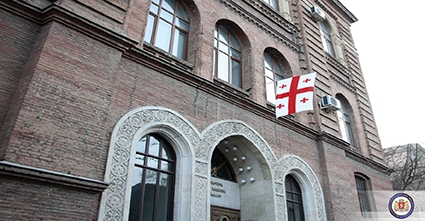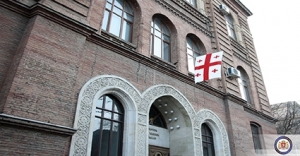Georgia: Russia Trying to Avoid Mutual Customs Agreement
Georgia’s Ministry of Foreign Affairs (MFA) says that the Russian Federation’s statement about involving the de facto South Ossetia (Tskhinvali) region in the agreement between Russia and Georgia about customs administration and commercial monitoring represents “a clear attempt to avoid the implementation of the agreement”.
Tbilisi emphasized that the purpose of the agreement is to monitor trade between Georgia and the Russian Federation.
The MFA says that with the support of a partner state, Switzerland, important steps have been taken to make this document practical.
However, Georgian leaders say that the comment made by the Russian Federation, about involving Georgia’s breakaway Tskhinvali in the agreement, brings the process to a deadlock.
“The Russians are trying to portray the occupied Tskhinvali region as a participant in the aforementioned agreement, which clearly contradicts the principles and purpose of this agreement,” Georgian MFA stated.
The ministry also added that such interpretation of the agreement is “unacceptable to Georgians, which is well-known by the Russian side”.
“We call on the Russian Federation to return to the legal framework, review its unconstructive position and to fulfill its international obligations,” Tbilisi stressed.
President of de facto South Ossetia, Anatoly Bibilov, stated at the St. Petersburg Economic Forum that they are ready to ensure cargo transit from Russia as an equal partner.
The MFA of Russia released a statement saying they welcome a “constructive and responsible position representing a real prospect for the development of trade-economic communication in Transcaucasia.”
Russia also called on Georgia to show a similar constructive spirit.
“The practical realization of the agreement would contribute significantly to international trade in the region. Unfortunately, the Georgian side refrains from completing the commitments within the framework of the agreement. We are hopeful the position will change,” Russian MFA stated.
On November 9, 2011, in Geneva, with the participation of Switzerland, Georgia and the Russian Federation agreed on having a neutral company monitor the movement of goods. The Swiss Confederation was tasked with selecting a neutral private company in consultation with Georgia and the Russian Federation.
The agreement does not mention any geographic name, only geographic coordinates. The agreement establishes three trade corridors: Adler – Zugdidi; the village of Nar (North Ossetia) – Gori; and Zemo Larsi – Kazbegi. All goods entering and exiting these corridors would be subjected to monitoring by the neutral private company.
The sides agreed to create a mechanism of customs administration and monitoring of trade in goods. The mechanism’s functions included gathering and sharing information, ensuring transparency, data transfer, crime and smuggling prevention, and examining suspicious cargo.
Georgia and Russia decided that the mechanism would entail both an Electronic Data Exchange System (EDES) and International Monitoring System (IMS).
Thea Morrison












